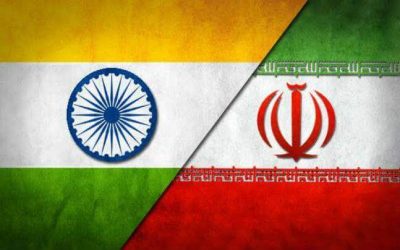Why Doesn’t India Follow China’s Iranian Oil Policy?

Iran’s ambassador to India claimed that the U.S. urges New Delhi to suspend its Iranian oil purchases, worth about $5 billion a year, through the threat of sanctions. The Iranian ambassador also called for India to become more active in its implementation of the Chabahar project which could rival the nearby Chinese-controlled Gwadar port in Pakistan.
India consumes about 3 million barrels of oil every day and Iran is one of the closest major oil producing countries to it. With the two countries having significant cultural, economic and political exchanges for thousands of years, will the U.S. be successful in downgrading their relations? Indian-Chinese relations are facing some challenges over differences because of the Belt and Road Initiative (BRI). New Delhi believes the BRI encroaches on its sphere of influence. India has been significantly warming their relations with Washington and therefore it is unlikely New Delhi will follow China’s Iranian oil policy of ignoring U.S. threats of sanctions.
With China and the U.S. engaged in a destructive trade war initiated by President Donald Trump, it is unlikely India is willing to face Washington’s so-called punishments for buying oil from Iran. China is becoming increasingly closer to Pakistan as the South Asian country has become a linchpin of the BRI with hundreds of billions of dollars invested into Pakistan’s infrastructure and economy.
India has close links with Arab countries, especially Saudi Arabia who now exports much of its oil to the country. India also has infrastructural plans with Arab countries, including the important Oman to Mumbai pipeline and another pipeline for India to provide Arab countries with drinking water. Therefore, despite the thousands of years of relations, in the Indian view, New Delhi has no necessity today to be under economic attack from the U.S. over Iranian oil when it is easily replaced by nearby Arab countries.
However, this does not mean that Iran is useless to India. As India has hostile relations with Pakistan, and are less than amicable with China, its only access to markets in Central Asia is through the Iranian Chabahar port. It is unlikely that the U.S. will attempt to persuade India from using this port as it has no other means to reach Central Asia. Therefore, it is likely that middle and small-scale operations and trade between India and Iran will continue, but major imports and exports will be discouraged and resisted by Washington.
When considering the millenia-old civilizational connection between India and Iran, it would be in the interest of New Delhi to maintain positive ties with Tehran. This includes purchasing its oil and pursue its country’s destiny without the interference of Great Powers. With New Delhi submitting to Washington’s demands, it suggests that India has a long way to go before it achieves Great Power status like the U.S., Russia and China, all of whom can pursue their own state destinies and have enough economic and military might to defend their interests.
With Russia challenging Washington’s hegemonic designs over the Middle East by successfully defending Syria from U.S.-backed terrorism, and China rolling out the BRI across the globe, including in the U.S.’ Latin American backyard, they have proven they are capable of defending their interests against the U.S.’ unilateralism.
Lidil Powell, head of the energy group at the Observer Research Foundation, a think-tank based in Delhi, explained that India can legally resume oil imports from Iran as it would adhere to the United Nations. However, because India lacks global power like China, it does not have the capacity to challenge Washington, and therefore cannot pursue China’s policy of ignoring U.S. demands against Iran.
Hindu-chauvinism against Islam is on the rise in India, which has correlated with Israel growing popularity in Israel. T while India receives financial incentives from Saudi Arabia like discounted oil to replace Iranian oil.
Although India does not have the capacity just yet to act as a Great Power to serve its interests primarily, it has significant experience in balancing relations between rivals. During the Cold War, New Delhi was able to balance its relations with the U.S. and Soviet Union and appears to be doing so now between Washington and Tehran, and Washington and Moscow. New Delhi maintains positive diplomatic relations with both Russia and Iran, despite pressures from Washington and making some economic concessions in the name of balance.
In the case of its relations with China, India is motivated by its self-interests that also happens to align with the U.S.’ plans to limit Chinese and Russian influence in the Indo-Pacific region as outlined in the Pentagon’s Indo-Pacific Strategy. Despite India and China having frosty relations, the Indians are pursuing the same policy of balancing its relations with the U.S. and their other rivals. In this manner, New Delhi is likely to benefit from rival regional and international powers based on their own national interests and will continue to balance their foreign relations at all levels.
Paul Antonopoulos, director of the Multipolarity research centre

